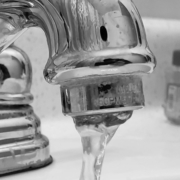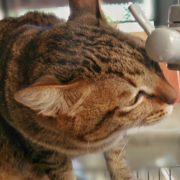As the global COVID-19 outbreak continues to develop and reports of bottled water shortages make headlines, the National Association of Water Companies, the American Water Works Association and the Association of Metropolitan Water Agencies recently issued a joint statement about the quality of tap water in North America.
According to the U.S. Environmental Protection Agency, America’s drinking water supplies remain a safe and affordable way to access the water needed for drinking, cooking and maintaining personal hygiene during the COVID-19 outbreak.
COVID-19 is not present in drinking water supplies
Americans and Canadians can and should continue to use and drink water from their tap as usual as COVID-19 is not present in drinking water supplies. Disinfection processes like those practiced by water systems across the North America provide protection that includes filtration and disinfection of our surface water supplies and disinfection of our ground water sources. These treatments are effective in removing and/or inactivating viruses.
Efforts by some to profiteer off of bottled water shortages are inexcusable, but drinking water consumers can avoid being taken advantage of by simply using the water that is available in their homes from the tap.
“America’s water companies share a deep understanding of the importance of the reliability of quality water and wastewater services in our daily lives and during a public health crisis and are committed to taking steps to help ensure our water systems are functioning both reliably and safely,” says NAWC President and CEO Robert Powleson.
COVID-19 response efforts by water providers protect public health
The municipalities and private companies that make up the 51,000 community water systems across the U.S. are taking measures to help protect their workforce so they can continue to keep the water flowing during the COVID-19 pandemic.
This means limiting home repair visits and directing customers to pay bills online instead of coming into their water providers’ offices. Because of the outbreak and the need for access to clean water in order to promote personal hygiene and overall public health, many systems across the United States are suspending shutoffs for nonpayments. If you are facing financial difficulty and cannot afford to pay your water bill at this time, please be in direct contact with your water provider.
“Water utilities throughout the United States and Canada are prepared to protect public health in normal conditions and in emergencies, and they are committed to keeping safe water flowing, 24/7,” says AWWA CEO David LaFrance. “During times like these, safe and reliable water service is essential for drinking and food preparation, hand-washing and carrying away waste.”
‘Challenging times’
As COVID-19 response efforts evolve to meet the needs of the American and Canadian people, the member organizations represented by NAWC, AWWA and AMWA will continue to support the water systems by offering all of the water profession’s expertise and resources at their disposal. The agencies added that they’re confident in their ability to serve communities across the country with the highest level of efficiency, empathy and professionalism.
“These are challenging times for our nation, but despite the many uncertainties regarding COVID-19, Americans should take comfort in the fact that the virus does not spread through drinking water supplies. The nation’s water systems remain committed to the uninterrupted delivery of clean and safe drinking water for the duration of this crisis,” says AMWA CEO Diane VanDe Hei.




